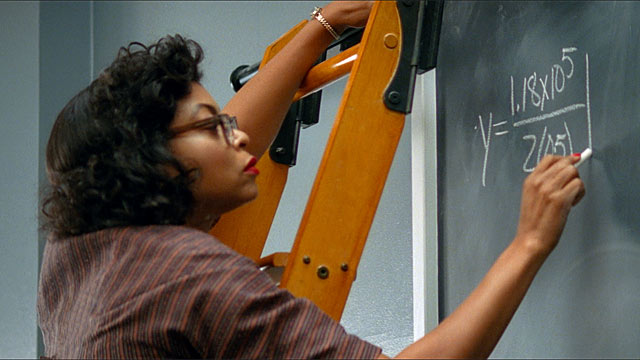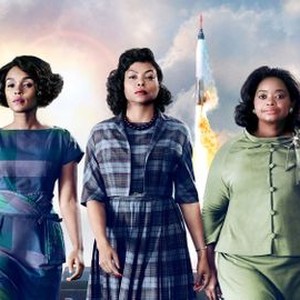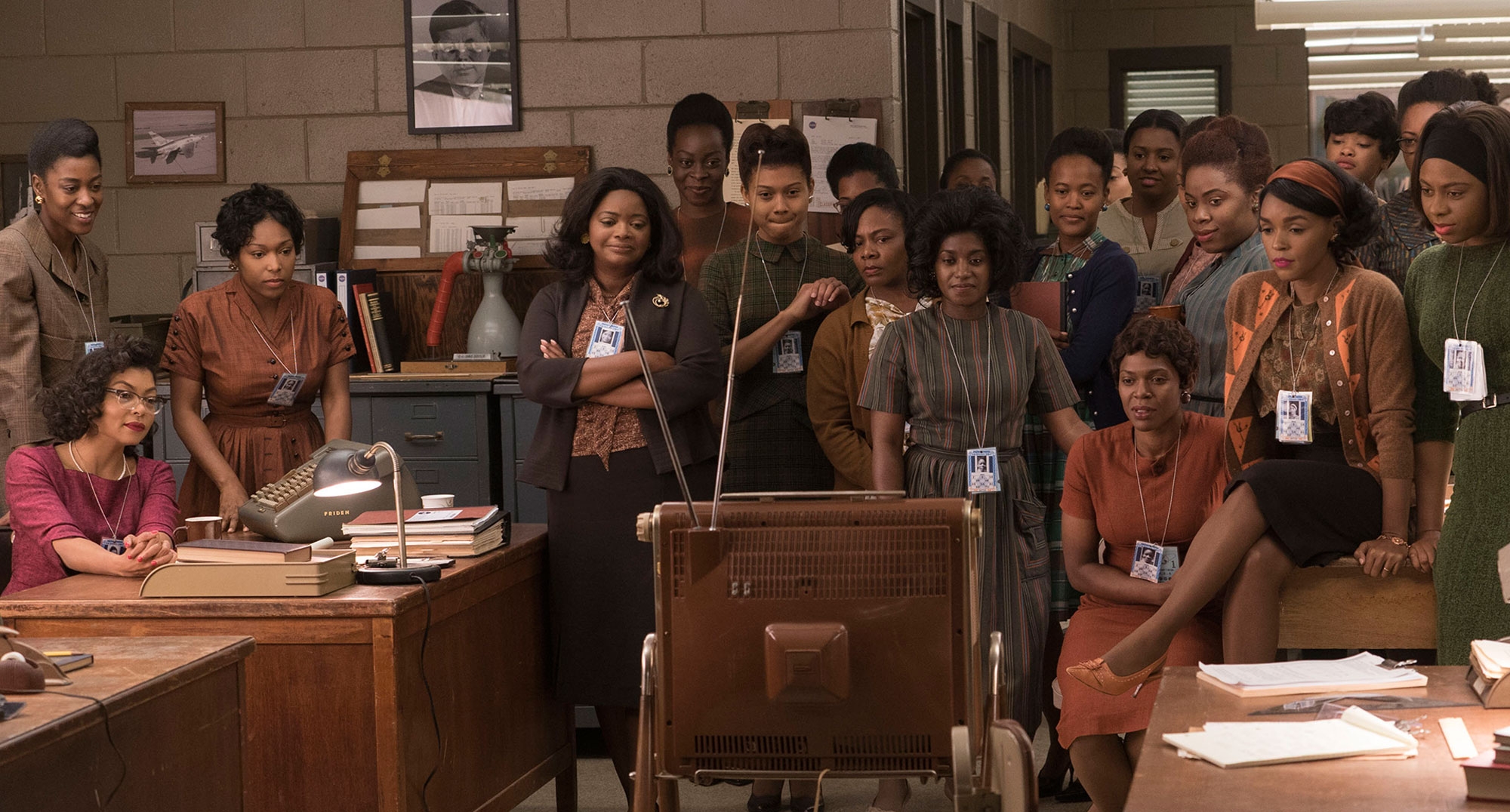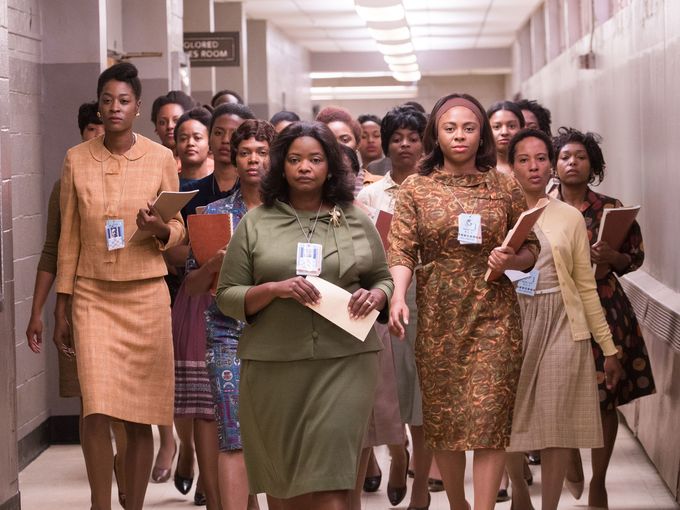The inspirational new film “Hidden Figures” teaches us after doing all you can, making painful sacrifices, cutting your teeth on every step to success, you just pray that your work does not go in vain. You know you did your best, regardless of the recognition you receive. For some, it may be begging a court judge to let you go to school, running half a mile to use the bathroom, or literally having the door slammed in your face after checking the computations for the most important U.S. space mission to date. For others, in more modern times, it may be being the only girl of color in the class, being more qualified but not getting the job, or feeling as though you have no one to back you up when you hear some white kids say the N-word in their favorite Kanye song.
This particular type of struggle is gracefully and eloquently portrayed in dirctor Theodore Melfi’s latest film, “Hidden Figures,” starring Taraji P. Henson as Katherine Johnson, Octavia Spencer as Dorothy Vaughn, and Janelle Monae as Mary Jackson, three trailblazing NASA scientists. By spotlighting three of countless exceptional true stories that positively feature black women (stories that we were never taught in school), “Hidden Figures” is a testimony to the struggle of women of color and how important it is to have a strong support system behind you every step of the way.
“Hidden Figures” follows three black women employed as “computers” in a segregated division at NASA’s Langley Research Center in 1962 and their incredible work that was essential to several of NASA’s missions and ground-breaking in the black womens’ presence in STEM fields.
A recurring theme throughout the film is when you feel unsupported or alone, you can either figure it out and make it work (even after being dismissed from a department you would have been an integral part of if you were given the chance) or you stand up for yourself and stunt on everyone who doesn’t want you to shine because of where you’re from or something about you that makes them uncomfortable.
As a high school senior, my college search process is finally coming to a close. Being a black girl looking her future dead in its wise, grinning eyes, I have found the HBCU (Historically Black Colleges & Universities) vs PWI (Predominantly White Institutions) debate a rather prominent question for me in the next few months. I’ve been wavering and debating for years now. I always had the gross misconception that smart black kids got into PWIs and all the other black kids go to HBCUs.
 I always thought going to a HBCU meant that I was settling and people would be disappointed in me because I went to Spelman or Claflin or FAMU rather than University of Georgia or Northwestern or University of Southern California. I was a black girl blinded by rankings, virtual tours and giant endowments.
I always thought going to a HBCU meant that I was settling and people would be disappointed in me because I went to Spelman or Claflin or FAMU rather than University of Georgia or Northwestern or University of Southern California. I was a black girl blinded by rankings, virtual tours and giant endowments.
But after watching “Hidden Figures” and visiting HBCU campuses across the southeast, as well as PWIs along the East Coast, I’ve realized that first and foremost, you can’t possibly know how you will feel at a school until you get there. Visiting was so instrumental in my feelings about HBCUs. Walking on a college campus, being immediately greeted by bright, wide smiles and delicious food, and having my godmother introduce me to all the deans, admission officers and heads of departments (she grew up with all these people), left me with a very comforting feeling. Having an honors student serve as your personal tour guide per the personal request from the Associate Director of Admissions also exhibited to me that I was wanted and welcomed and supported by people who had known me for the better half of two hours. I felt love, support and warmth — and a sense of community and excellence unprecedented.
What “Hidden Figures” taught me was that having unwavering support and people who actually care about you and can connect with you on levels unimaginable is incredibly important and could be equally important to me in my own personal college search. Watching Dorothy Vaughn (Spencer) risk her safety and her sons’ safety by stealing a library book to educate and subsequently provide job security for the entire West Computing Group under her care and supervision truly spoke to the collective thought that no one will help us if we won’t help ourselves. Dorothy Vaughn provided help, the women were very receptive, and she single-handedly uplifted an entire group of colored women in a system that would have had their jobs eliminated. 
That same support and a family-like atmosphere seems to be a trend in the HBCU community that I am now beginning to embrace and adore. Based on these experiences, I have made a relatively certain decision that I will attend a HBCU for my undergraduate career. I have high hopes and high expectations of myself that I will take advantage of all the resources available to me so that I may continue the legacy of black excellence in the HBCU community.
Thalia is a senior at DeKalb School of the Arts.





These women are strong and very intelligent